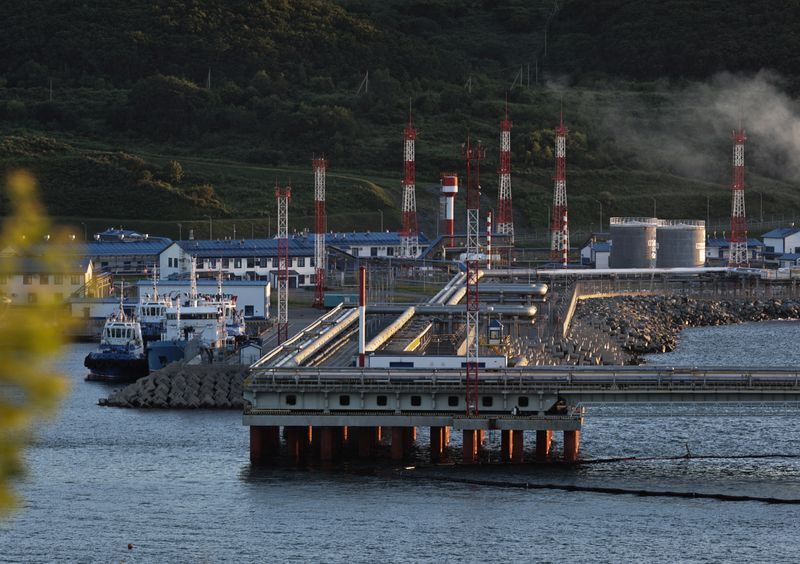By Paul Carsten and Nia Williams
(Reuters) -Oil prices rose on Thursday after Israel and the Lebanese armed group Hezbollah leveled accusations that their ceasefire had been violated, and as Israeli tanks fired on southern Lebanon.
OPEC+ also postponed a meeting by a few days that would likely lead to an extension of production cuts.
futures rose 34 cents, or 0.5%, to $73.17 a barrel by 2026 GMT. U.S. West Texas Intermediate crude futures rose 16 cents, or 0.2%, to $68.88. Trading was thin due to the American Thanksgiving holiday.
The Israeli military said the ceasefire was violated after alleged suspects, some in vehicles, arrived in several areas in the southern zone.
The agreement, which came into effect on Wednesday, was aimed at allowing people in both countries to return to homes in border areas devastated by 14 months of fighting.
The Middle East is one of the world’s top oil-producing regions, and while the ongoing conflict has not affected supply so far, it has reflected in a risk premium for traders.
Elsewhere, OPEC+, made up of the Organization of the Petroleum Exporting Countries and allies including Russia, postponed its next policy meeting from December 1 to December 5 to avoid a clash with another event.
Also supporting prices, OPEC+ sources have said there will be renewed discussion about another delay in an oil production increase scheduled for January.
“It’s very unlikely they’ll announce a production increase at this meeting,” said Rory Johnston, an analyst at Commodity Context.
The group pumps about half the world’s oil but maintains production cuts to support prices. The country hopes to reverse these cuts, but weak global demand has forced the country to delay the start of gradual increases.
A further slowdown has largely already been reflected in oil prices, says Suvro Sarkar of DBS Bank. “The only question is whether it is a one-month pushback, or three, or even longer.”

Putting some pressure on prices, U.S. gasoline inventories rose by 3.3 million barrels in the week ended Nov. 22, the U.S. Energy Information Administration said Wednesday, raising expectations of a small decline in fuel inventories ahead of the holiday travel season. opposed. [EIA/S]
Slowing fuel demand growth among top consumers China and the US has weighed on oil prices this year.
(Reporting by Nia Williams in British Columbia and by Paul Carsten and Enes Tunagur in London; Editing by David Goodman, Jason Neely, David Evans, David Gregorio and Diane Craft)


